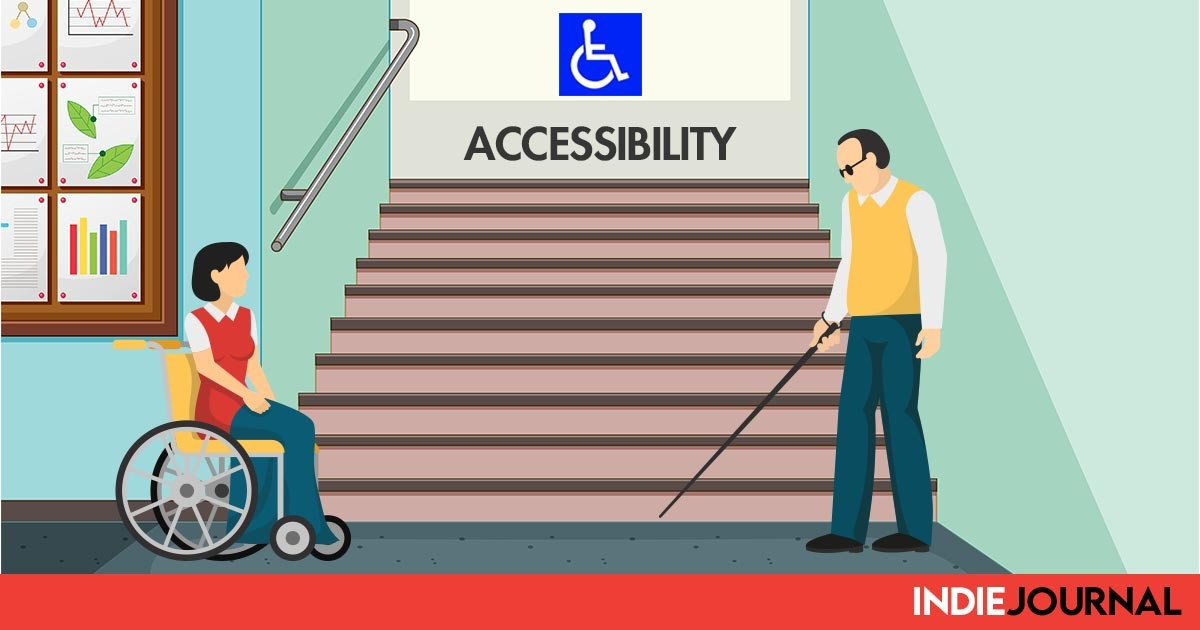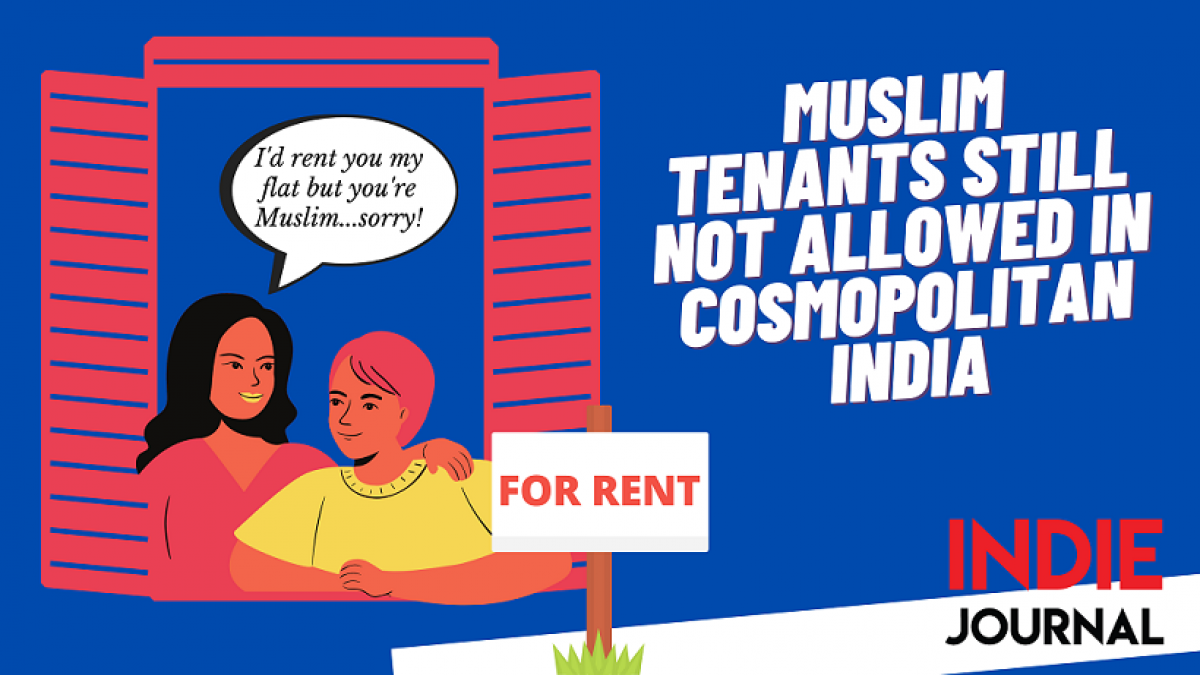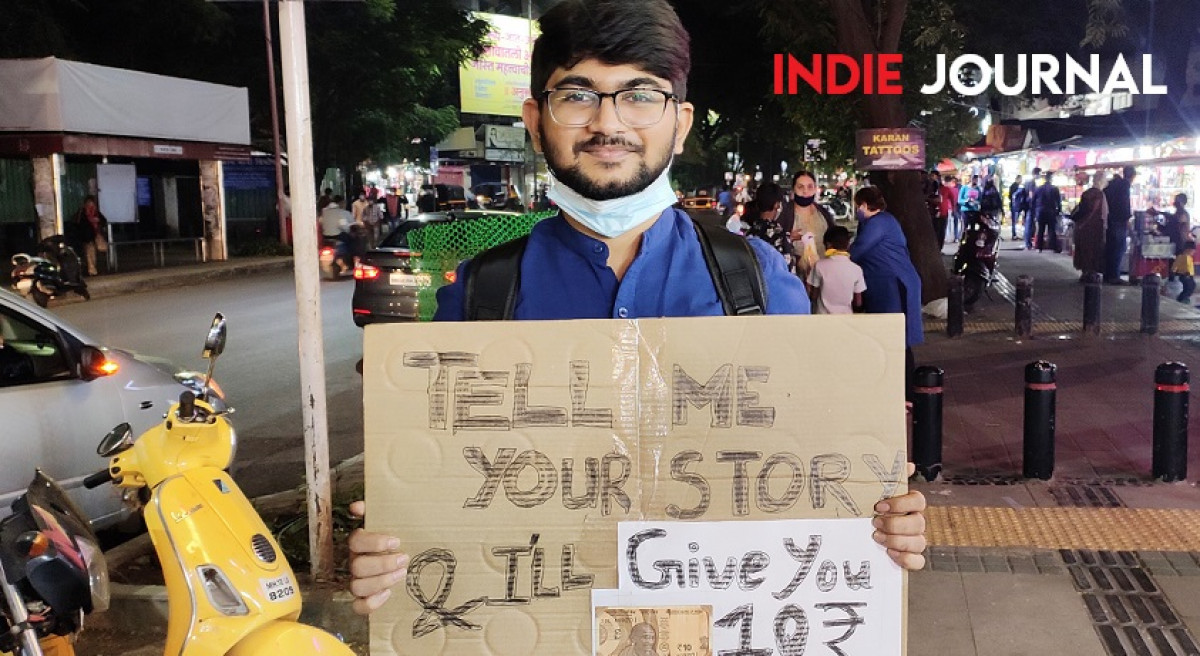India
How the pandemic further disabled the disabled
International day of people with disabilities: Those with disabilities were battling the pandemic amidst social and administrative apathy.

When the COVID-19 induced lockdown hit the world earlier this year, it unquestionably brought everyone’s life to a halt. While people found it hard to adjust to a life with restrictions imposed by the government, those with disabilities were battling the pandemic amidst social and administrative apathy. The question of how, we as a nation, prepare for any natural or man-made disaster while keeping the disabled in mind became even more crucial.
Vibhakar Rao, 73, is a retired professor who lives alone in Pune and uses a wheelchair since he lost the ability to walk following a road accident in 2006. “On the evening of March 22nd, I remember being quite anxious as there were talks of a potential lockdown the day before. And when the Prime Minister announced a three-week-long lockdown in his speech, I panicked. You see, I live alone, I can barely use the internet, the neighbours here don’t talk much, I can’t go out on my own – so how would I get my essentials or contact someone in an emergency when no one is allowed to leave their house?” recalled Rao.
The PM’s address to the nation on March 22nd failed to mention the provisions planned for the disabled community. Those living alone or away from their family were left in a state of anxiety amidst a deadly pandemic. It only emphasised India’s apathy towards people with disabilities when planning emergency measures during a disaster.
“In developed countries, whenever a leader gives important information to the public, there’s always a person translating it into sign language. It is done to ensure that no one is deprived of any vital information. Did you see any such person during the PM’s address to the nation? 18 million deaf individuals in the country had to rely on the news headlines flashing on the screen and on others to find the exact information about the lockdown. Is it too difficult or expensive to get a sign language interpreter on screen?” asks Bidisha, a volunteer with the National Association of the Deaf.
The government had earlier advised that all information about COVID-19, the services offered and precautions to be taken should be available in a simple and local language in accessible formats. These formats included Braille and audio tapes for persons with visual impairment, video-graphic material with subtitles and sign language interpretation for persons with hearing impairment, and through accessible web sites. However, several people with visual impairment could not locate information about COVID-19 in Braille or audio formats, making them just as dependent as they were on others before the pandemic struck.
While there were problems for those with physical disabilities to receive news about the lockdown sooner, the next set of difficulties presented itself with the absence of caregivers and volunteer helpers. Rao had to contact his neighbours on multiple occasions to order groceries and medicines. “I felt like I was disturbing them by doing so. With my caregiver confined to his home during the lockdown, I also had to cook for myself. So, the neighbours helped me take the gas stove on the floor. They were also kind enough to check on me regularly – whether I was taking medicines on time, sleeping on time, etc. I was also assured that I could call them anytime if I ever needed help,” Rao said.
The government had also directed essential workers saying, "Persons with disabilities should be given access to essential food, water, medicine, and, to the extent possible, such items should be delivered at their residence or place where they have been quarantined”. But Rao was deprived of this provisional aid too, owing to the ambiguity and inefficiency of the guidelines.
According to the guidelines issued by the Department of Empowerment of Persons with Disabilities (DEPwD) under the Ministry of Social Justice and Empowerment in March, “Caregivers of persons with disabilities should be allowed to reach persons with disabilities by exempting them from restrictions during the lockdown period, or by providing them with passes in a simplified manner on priority.”
Yet, Rao’s caregiver was denied permission and beaten up by the police, even when he carried all necessary documents with him. Speaking about the incident, the caregiver Mangesh Borkar said, “I had contacted the doctor before deciding to step out and visit Mr. Rao. I familiarised myself with all the protocols and rules to follow and carried Mr. Rao’s latest medical reports and his disability card that the doctor provided. Yet I was beaten up, before getting a chance to show them the documents. In order to tend to my own injuries, and to wait for the travel pass, I could not visit Mr. Rao for a few days.”
To make the COVID-19 treatment more inclusive for people with disabilities, the guidelines also stated that “all persons responsible for handling emergency response services should be trained on the rights of persons with disabilities, and on risks associated with additional problems for persons having specific impairments”. It also said that during quarantine, essential support services, personal assistance and physical and communication accessibility should be ensured for blind persons and persons with intellectual or mental disability.
But when Amol Gore (25), who has a visual impairment, contracted COVID-19, and was shifted to the COVID-19 care facility at Ratna Hospital in Pune, he faced a few accessibility issues. “Among the five-six patients in my ward, I was the only blind patient. We couldn’t meet anyone from our family which made me quite anxious. The staff was irritated with me after I constantly required their help even for the most basic things – like eating fruits, using the toilet, or just pouring water in the glass from the jug which was on the common table. Had I known the surroundings, I would have done most of the things myself. After a point, the staff started to visit me less, they even didn’t respond to me. I felt unwanted, helpless and so alone that I spent the last few days crying.”
On #IDPWD, children with disabilities from Uttar Pradesh share what they need to go to school.#Reimagine pic.twitter.com/m1xciuaJHd
— UNICEF India (@UNICEFIndia) December 3, 2020
Amol, and patients like him, are assured assistance from a trained attendant who can help them in the COVID-19 care facilities. Still, there has been a lack of these trained professionals across the city as the transit training for medical caregivers was never conducted. Most medical staff relied on primary knowledge to help people with disabilities, especially those who were visually impaired or quadriplegic/paraplegic. All healthcare providers were also supposed to be trained in sign language that would help them in tending the deaf patients without having to touch them. This training was, again, not provided. Not only did this compromise the quality of assistance, but also put the patients at potential risk of mental stress in the isolation period of 14 days.
Students from the disabled community struggled too when the Maharashtra Government announced that final year examinations will be conducted this year. The students could appear for the exams online, or offline i.e. in an exam centre. For students who left their study material in the hostels before leaving for their hometown, the exams were a nightmare. “My books were in Mumbai, the volunteers who help audio record the study material wasn’t available, and I had no idea how I will be giving an exam especially when my family doesn’t know how to operate the computer,” said Pratiksha Bhor, a final year Psychology student of Mumbai University, who spent the lockdown with her family in Ratnagiri. Such students had to travel back to colleges risking the deadly virus. Pratiksha doubted if the authorities had taken into consideration the circumstances of students like her who could lose one education year only because there were no proper provisions made.
Mrudula Sasane, a social worker from Pune, was working on the front to help these students in need. Along with her colleagues, she arranged devices for the students who chose the online mode of examination. The group even managed to audio record study material for the blind, which was circulated over WhatsApp. “A student from Udgir Taluka came back to Pune as she selected the offline examination. Her family couldn’t help her with the online exam and thought it was best to send her to Pune. I eased her anxiety when I met her, and when we tried to talk to the exam director at SPPU, he literally shouted at us for being “careless”. He was not ready to listen to us. As a result, the student travelled from Gokhalenagar to Hadapsar daily to attend the exams.”
The fact that the authorities were not willing to listen and consider the issue Mrudula was stating, had puzzled her the most. “Why do the volunteers have to empathise and help the disabled, why aren’t the authorities held accountable ever, especially during a pandemic?” asked Mrudula.
Kamala Ruhani, another social worker from Mumbai for the disabled, points out that people with disabilities from financially privileged communities are generally the ones who live with fewer struggles as compared to those who aren’t. They have access to more facilities and their needs can be fulfilled without the government interfering much. "When the government makes any provisions for the disabled, they need to take into account if every person across the class divide has access to mediums through which these provisions are being implemented. Else it’s just unfair and not at all inclusive,” says Ruhani.
Building ramps across all institutions - not only hospitals, making information available in Braille while also ensuring that a sign language interpreter is available on stage, training the medical staff and emergency responders in dealing with people with disabilities are the primary necessities of society – especially when it is during a pandemic. Now that the country is in an unlock stage and people with disabilities can step out of their homes, it won’t be too much to expect some accessible infrastructure and better medical care. It is their right to access and avail better healthcare facilities that should be provided by the government and authorities. On the occasion of International Day of People with Disabilities today, UN Secretary-General Antonio Guterres, while addressing countries that are parties to the 2006 Convention on the Rights of Persons with Disabilities, said, “Realising the rights of persons with disabilities is crucial to fulfilling the core promise of the 2030 Agenda: to leave no behind.” One can only expect to see this promise being fulfilled in India before another disaster strikes where the rights of the disabled are compromised.





